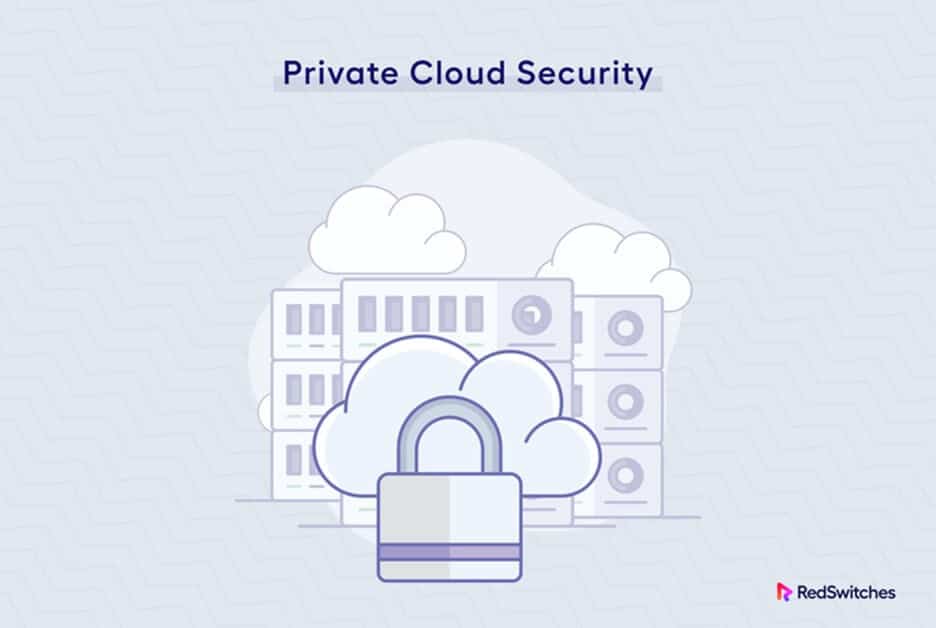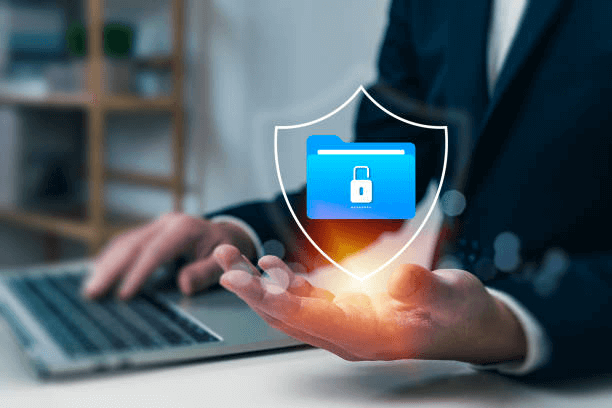Did you know that 41 percent of IT decision-makers operate private clouds at a lower cost than equivalent public cloud pricing? This is one of the many interesting facts about private cloud security. Many businesses work from the cloud as it makes activities accessible, flexible, and scalable, among other benefits.
When you move to the cloud, cloud security should be a priority. Whether you move to a private, public, or hybrid cloud, you need tight security for your data. While the public cloud allows you to share security resources with other users, all private cloud resources belong to you. Yet again, another safe fact about the private cloud.
If you use the private cloud already, do you have tight security? Are your company files safe not only from external but also internal intruders? You need adequate security in the private cloud to protect you and your company. This article will teach you all you need to know about private cloud security.
Table of Content
- What Is Cloud Security?
- What Are The Types of Clouds?
- What Is Private Cloud Security?
- When Is Private Cloud Security Used?
- Advantages And Disadvantages Of Private Cloud Security
- Private Cloud Security Risks
- How to Secure Private Cloud
- Key Takeaways
- FAQs
What Is Cloud Security?
Cloud security is a group of actions to protect cloud-based files, applications, and infrastructure from cyber-attacks and threats. Cyber threats could include data breaches or loss. As long as you are in the cloud, you are at risk of cyber attack. In the cloud, service providers and clients control cloud security.
What Are The Different Types of Clouds?
The cloud computing environment has three types; Private, Public, and Hybrid Cloud.
Private Cloud
As a private cloud owner, you neither share the cloud computing environment nor other resources with any other organization. If the hardware and software for the cloud are within the premises, an IT team is in charge of control. The control could also be in an external data center run by cloud hosting providers.
Public Cloud
The public cloud is run and managed by a third-party service provider that makes cloud infrastructure available to the public. Companies worldwide can rent their services for a fee. Here, you need not bother about the cost of building or maintaining data centers.
Hybrid Cloud
A hybrid cloud brings together the use of a private and public cloud. Some advantages of the private cloud are absent from the public cloud and vice versa. A hybrid cloud can include on-premise cloud infrastructure as part of the private cloud setup.
What Is Private Cloud Security?
Credit: iStock Photo
The organization in the private cloud handles the private cloud hosting security. It is also called a single-tenant cloud service. These organizations select appropriate firewalls to prevent the activities of cyber criminals within the organization.
While putting software protection in place, there is also an adequate provision to protect the traditional data servers. There should be a security guard to regulate personnel entry and high-resolution security cameras behind locked doors. All of this also implies that private cloud security requires the services of a security expert first to put tight protocols in place.
When Is Private Cloud Security Used?
Companies that run on a cloud need high security. Such a company needs private cloud data security from operation to prevent attacks. You also need security when there are irregular activities by outsiders or organization members.
Private Cloud v/s Public Cloud
While the private cloud is single-tenant, the public cloud environment accommodates multiple users via the Internet. The organization has exclusive control over physical data centers in a private cloud. In a public cloud, organizations need not worry about physical infrastructure.
Private Cloud v/s Hybrid Cloud
A hybrid cloud merges public and private cloud infrastructures into a single flexible infrastructure. They distribute resources to maximize cost, performance, compliance, and security. For example, if you run a hybrid cloud, you can store sensitive data in the private cloud leaving other applications in the public cloud. Whereas with a private cloud, all aspects of the organization are in one place.
Advantages And Disadvantages Of Private Cloud Security
The table below displays various pros and cons of private cloud for your clear understanding.
| Pros | Cons |
| Sovereign Access to Hardware and Software Choices: As a private cloud owner, you can choose the hardware and software programs peculiar to your operations. | Compliance with Regulatory Standards: When you run a private cloud, you can ensure full compliance with your nation’s regulatory standards. |
| Freedom to Customize Infrastructure: Private cloud users can customize hardware. Also, they can acquire several software add-ons as required. | High Capital Investment: Establishing a private cloud requires huge capital to purchase the physical infrastructure for the cloud. Aside from that, you also need to employ IT staff to manage private cloud security controls. |
| Greater Security Visibility: Due to sovereign access, private cloud users can control what goes on behind the scenes. | Limited Flexibility: After the initial investment in physical infrastructure, adding more when needed is difficult. |
Private Cloud Security Risks
Credit: iStock Photo
Migrating to the private cloud puts your company at some risk automatically. If you are moving to a private cloud, here are some common risks you should prepare for.
Inadequate Capacity: If there is an inaccurate determination of the business needs, you could purchase inadequate or excessive infrastructure for your business. This would amount to a waste of investment.
Security Concerns: Security threats remain a significant risk in cloud ventures. Users should prepare for attacks by strengthening their private cloud computing security in the initial stages. Also, conduct penetration testing to confirm security at regular intervals.
Performance Issues: When an organization runs in the private cloud, they have to do many things to control. In turn, they may neglect some critical parts for others.
How To Secure Private Cloud
Web Application Protection
For each application in the cloud, fix a web application firewall. Having a firewall is not only choosing one and installing one. It requires selecting a firewall that will secure and improve the performance of your applications.
Server Hardening
Go a step further to implement server hardening. Server hardening helps to reduce your cloud’s risk of security breaches.
Data Encryption
Ensure active data encryption at every point in the cloud. This security method encodes information to be accessed by users with the correct encryption key and adds a two-factor authentication.
Disaster Recovery Plan
Activate an automated backup plan regularly. Without backup, you risk losing data in equipment failure or unexpected happenings. Also, ensure that your backed-up files are within different geographic locations from the original files.
Built-on Physical Security
You also cater to your organization’s physical security as you provide software security. Invest in a team that understands your security goals and monitors access to the data center.
Key Takeaways
The private cloud is preferable for all cloud types due to its single-tenant security. No matter the private cloud operational security risks, you can overcome them with these critical points.
- Security in a private cloud refers to the set of actions to protect cloud-based data, applications, and infrastructure from cyber-attacks.
- The three cloud types are private, public, and hybrid.
- The private cloud is single-tenant, accommodating one organization, while other cloud types allow multi-tenant operation via the Internet.
- The private cloud has several advantages: sovereign access, customization, greater security, and visibility.
- Secure your private cloud data by deploying firewalls, server hardening plans, disaster recovery, data encryption, and physical security.
When you decide to move to a private cloud, we are the private hosting company you need. At Redswitches, you will discover flexible, scalable, and high-performance hosting options for your company. We help you recognize and mitigate risks adequately. Contact us to run your business with maximum private cloud security.
Frequently Asked Questions (FAQs)
Q-1) Why use a private cloud instead of a public cloud?
Private clouds have many advantages, including autonomy in operation and control.
Q-2) What is a private cloud company?
A private cloud company is a cloud computing environment in which all hardware and software resources belong to one organization.
Q-3) Can cloud computing be private to an organization?
An organization can make cloud computing private by setting a private cloud exclusive to them alone.
Q-4) Who manages the private cloud?
The IT control team of that organization is responsible for managing activities on the private cloud.
Q-5) Who is the largest private cloud provider?
As of 2023, Amazon Web Services (AWS) is the largest private cloud provider, with a market share of more than Microsoft Azure and Google Cloud Platform combined.



